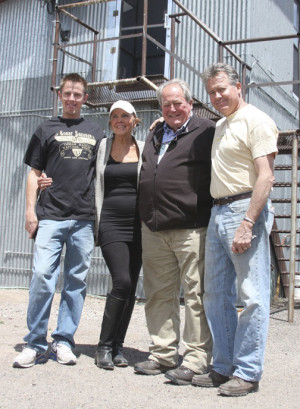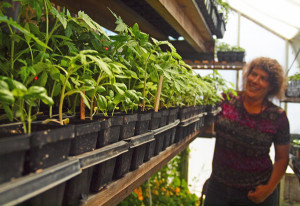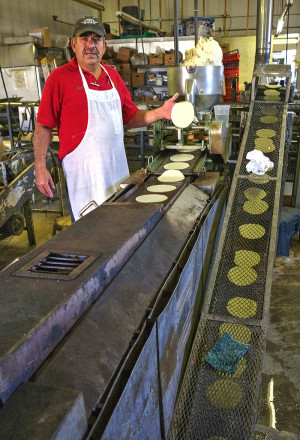By Abby Quillen
I’d spied the “9 Ways to Raise Healthy Eaters” and “7 Ways to Get Your Kids to Eat Veggies” headlines on the covers of parenting magazines. So I was delighted that my infant son Ezra gobbled up squash, spinach, beets, carrots, green beans and cauliflower. He devoured soupy, squishy vegetable combinations that didn’t look appetizing even to me, and I love veggies. Perhaps we’d dodged the picky-eating issues and could get a head start on agonizing about the piercings and tattoos he’d get during his teenage years.
Then Ezra turned one.
 Suddenly he developed keen vegetable detection skills rivaling the U.S. Geological Service’s earthquake detection system. It’s not that he hated them; he just didn’t want them anywhere near his mouth. He picked out the bits of spinach in an omelet, scowled at the green peppers on a piece of pizza, and pushed the vegetable soup away before trying it, proclaiming, “All done.” What was going on? Had the piece of chocolate cake he’d smeared all over his face on his first birthday ruined his proclivity for greens? Had he somehow sensed that his dad and I found his pureed veggie blends distasteful?
Suddenly he developed keen vegetable detection skills rivaling the U.S. Geological Service’s earthquake detection system. It’s not that he hated them; he just didn’t want them anywhere near his mouth. He picked out the bits of spinach in an omelet, scowled at the green peppers on a piece of pizza, and pushed the vegetable soup away before trying it, proclaiming, “All done.” What was going on? Had the piece of chocolate cake he’d smeared all over his face on his first birthday ruined his proclivity for greens? Had he somehow sensed that his dad and I found his pureed veggie blends distasteful?
Overnight I found myself flipping through the articles in the aforementioned magazines and discovered a study that suggests toddlers might be hard-wired to spurn greens. Kids with a “bitter-sensitive allele (P) on the TAS2R38 receptor gene” – and that’s supposedly about 80 percent of kids – are acutely sensitive to bitter tastes. Thus they naturally tend to prefer sweet things. Perhaps Ezra had been condemned by his genes to eat broccoli only when smothered in cheese, hidden in muffins or prepared in the other ways the lists advise weary parents to sneak greens into their veggie-spurning kids.
But one potential solution also made every list: gardening. Apparently kids are more apt to eat their veggies if they see how much slugs and grasshoppers enjoy them. That sounded perfect to me, since I needed all the help I could get in the garden.
By two, Ezra could hold the hose and help pick weeds. He didn’t yet know the difference between bindweed and spinach, so he often heard, “No, no, no. Not that one.” But he didn’t seem to mind.
And imagine my delight when we trudged out to water the garden one morning and he squealed “Peas!” Then proceeded to identify all the other vegetables in our raised beds. He didn’t seem particularly interested in ingesting any of them, but at least he was learning some new words.
Then an astonishing thing happened when I was lounging on the porch on a scorching afternoon eating snap peas and dreaming of rain deluges. Ezra, who asked for a cookie within 45 minutes of waking most mornings, ran up to me, held out his hand, and said, “Pea please.” I was sure I’d misunderstood. But I handed him one anyway, hoping the nutrients might absorb through his skin. Then he ate it … and asked for another.
Four years later, Ezra is a snap pea gourmand and an enthusiastic gardener. His little brother Ira is at our side now, too, studying invertebrates, also known as “wormies,” and devouring his share of peas, tomatoes and carrots.
I’m not sure that watering vegetables helped Ezra and Ira develop a palate for them. Food tastes are probably like every other thing involved in parenting toddlers – maddeningly unpredictable. But I’m sold. It doesn’t hurt that I have helpers to carry my gardening tools.
Abby Quillen is the author of the novel The Garden of Dead Dreams, which will be out June 19. Her articles and essays have appeared in YES! Magazine and The Christian Science Monitor and on Common Dreams, Nation of Change, Reader Supported News, The Daily Good, Truthout, and Shareable.net. You can find her at abbyquillen.com.





